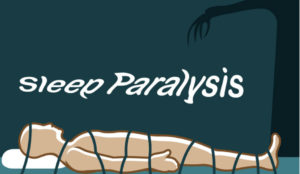What is Sleep Paralysis?
Paralysis during the sleep is a phenomenon in which an individual, either during falling asleep or awakening, briefly experiences an inability to move, speak, or react for a few seconds up to a few minutes. It is a transitional state between wakefulness and sleep.
